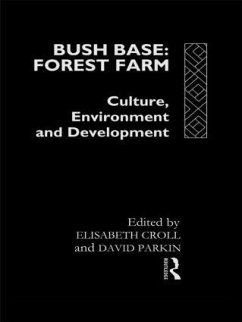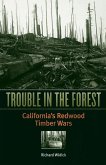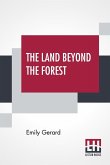The relationships between humans and their natural surroundings is paradoxical. We impose knowldge and action on the world around us, yet at the same time, we work within a web of beliefs and myths which suggest that we and our environments are inseperably fused, with neither one more powerful than the other. How to reconcile these two facts is central also to development programmes throughout the world, where environmental views often conflict with the concern for economic growth and modernisation.L Combining practical experience with theoretical sophisticatio, Bush Base, Forest Farm presents a thorough understanding of different peoples' cosmologies and cultures in relation to their environments from an original anthropological perspective. It ahould become required reading for undergraduates, lecturers and policy makers in anthropology, development studies and environmental studies.
Taking a unique anthropological apprach, Bush Base: Forest Farm explores the management of resources in third would development programmes. The contributors, all distinguished anthropologists with practical experience of development projects, focus on the role of human cultural imagination in the use of environmental resources. They challenge the traditional sharp distinction between human settlement and natual environment (farm or camp, forest or bush), and argue that development programmes should place at their centre an appreciation of people's cosmologies and cultural understandings.
Hinweis: Dieser Artikel kann nur an eine deutsche Lieferadresse ausgeliefert werden.
Taking a unique anthropological apprach, Bush Base: Forest Farm explores the management of resources in third would development programmes. The contributors, all distinguished anthropologists with practical experience of development projects, focus on the role of human cultural imagination in the use of environmental resources. They challenge the traditional sharp distinction between human settlement and natual environment (farm or camp, forest or bush), and argue that development programmes should place at their centre an appreciation of people's cosmologies and cultural understandings.
Hinweis: Dieser Artikel kann nur an eine deutsche Lieferadresse ausgeliefert werden.








